Creation in other vectors
I have not been idle these last few months. Instead of being expressive in the verbal domain, I have been learning how to express via another sense: taste. As in the taste of sweet, delicious beer! May this open the floodgates to more regular writing.
So, beer! My friend Clinton (AKA the unknown lamer) has plenty of experience brewing. He used to run batches in Baltimore, MD, and when I moved down to NC I discovered that he had moved here too! Many good times have been had among our circle of friends here over the last few years, and I had occasionally pestered him to pick it back up so that the good times may acquire a new dimension. Well, he acquired steadier work, and the four of us agreed to start brewing. It took some initial outlay on Clinton’s part for equipment, as he knew what materials would be best to invest in after his Baltimore operation. One 100,000 BTU propane burner, an 7.5 gallon steel kettle, a few fermentation vessels, and some very quick education later, we were in business.
We do most of our note-taking on the wiki (link to homebrewing section). Clinton linked to How To Brew and we had a handy book called Beer Captured. (The book has some 150 clone recipes of various commercial beers.) Each of us flipped through the latter and decided on the sort of beer we wanted to make. Happily, the season was right for dark beer, because aside from Clinton’s pale ale–arguably appropriate any time of year–we chose dark, malty beers: bpt’s Wassail Ale, JHitz’s Brown Town, and my own Bubonic Porter.
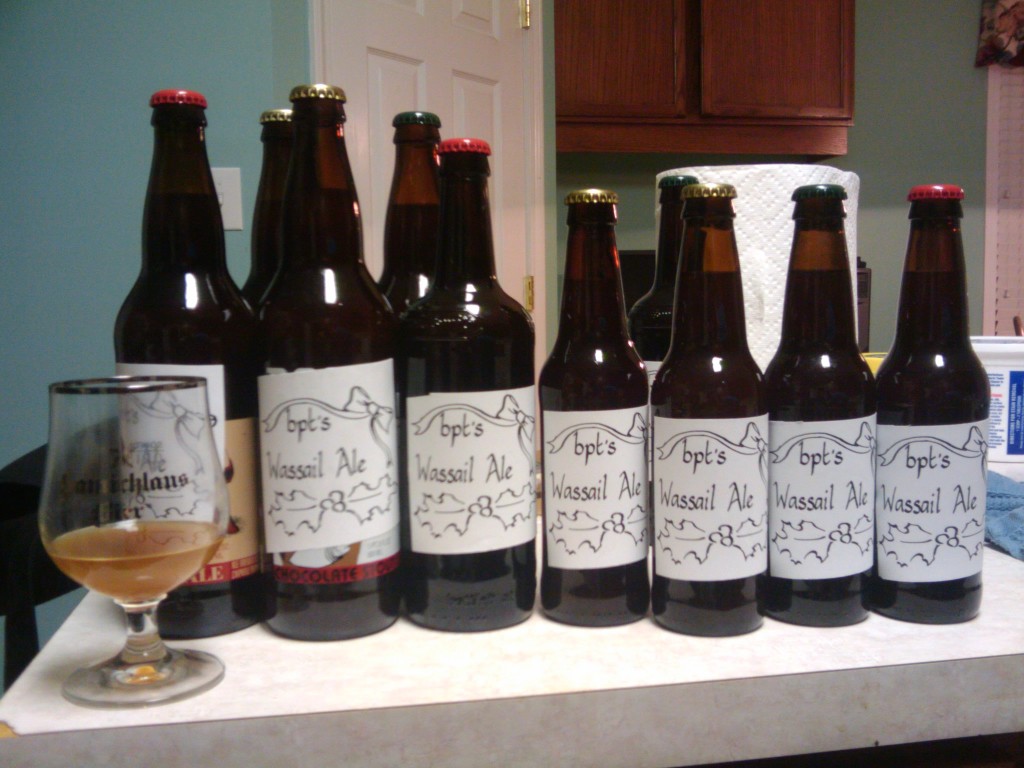
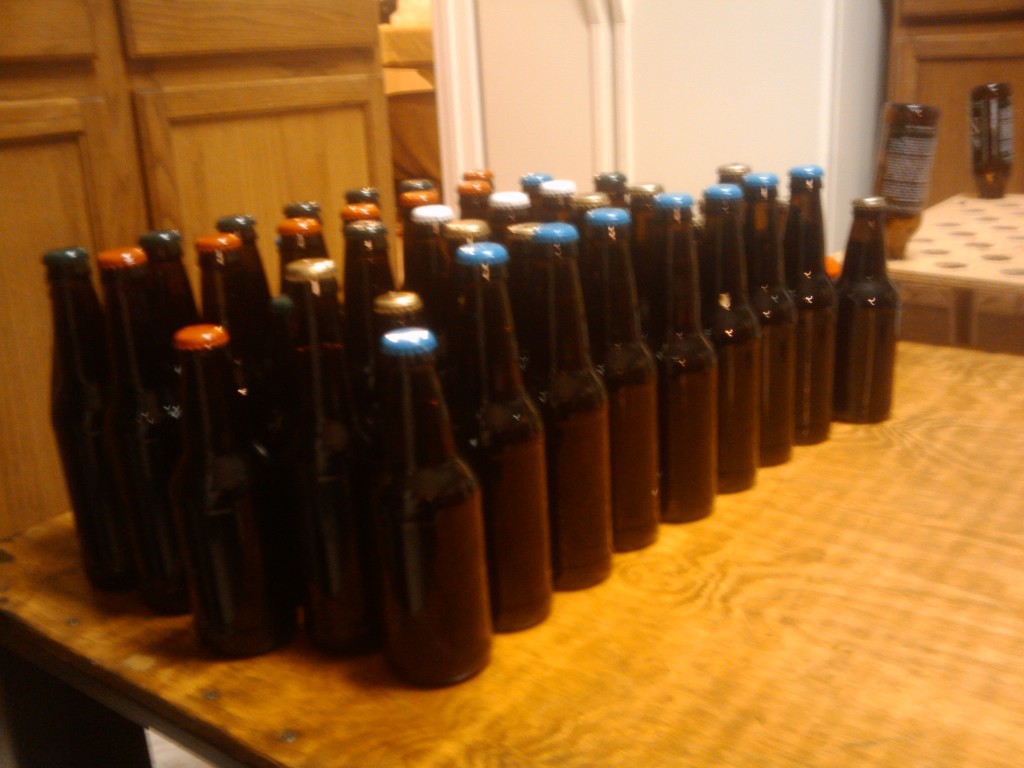
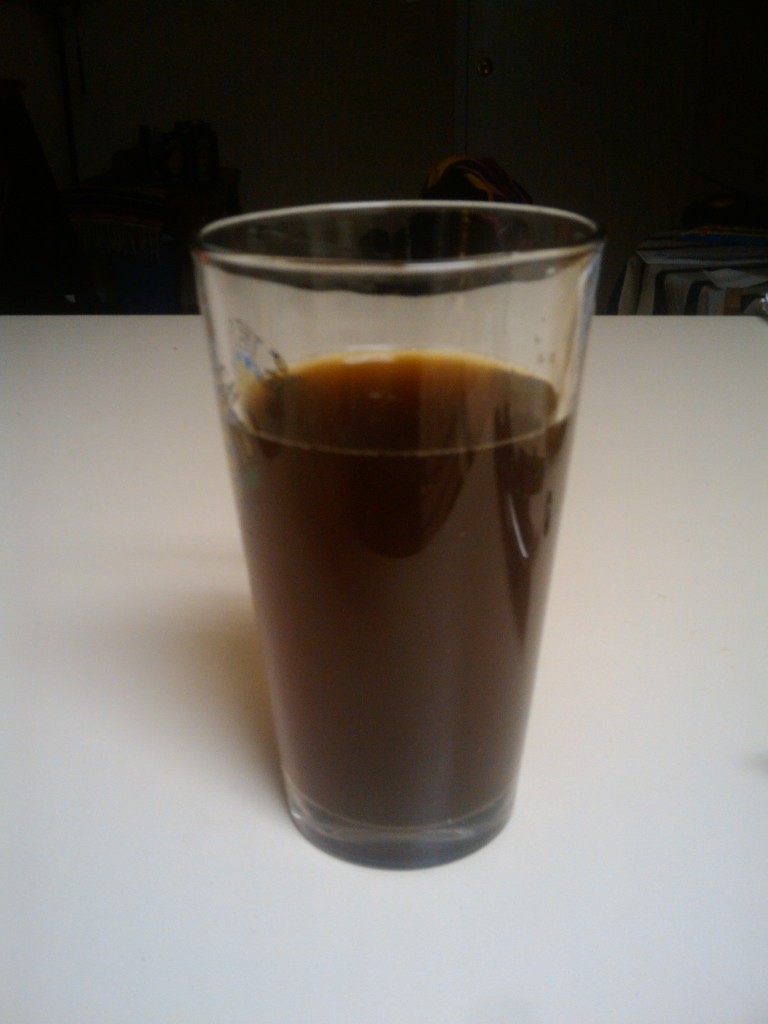
Well, that first round was an interesting ride, to say the least. We refined our technique and use of equipment with each batch, accounting for mistakes and mishaps from the previous. Boilovers, wort chiller failures, mispitched yeast; you name it, we screwed up. Except in sanitation! For this I am eminently glad Clinton was guiding our efforts, for where each of us might have been somewhat lax, he was annoyingly strict. And our beer has turned out delicious for it. The second round was another stage in the learning process. Once we had the actual brewing down fairly well, we began figuring out how to brew beer the old-fashioned way: all-grain brewing.

The easiest way to brew a beer is to use dry or liquid malt extract as the sugar base on which the yeast will feed, and it allows you to brew some delicious beer in a reasonably short period. All-grain brewing, on the other hand, entails soaking grains and extracting the malt from them yourself; it essentially affords you much greater control over the character of your beer. (It also adds an hour or two to the brewing.) But we didn’t initially intend to go full-bore into all-grain. I had suggested for my next beer a Belgian Wit, a very light and springy beer, but Clinton had concerns that our process wasn’t yet up to snuff. Futhermore, the yeast I had procured was more suitable for a Saison–a similar style, but more heavily spiced and more tolerant of errors in production. So to compromise, Clinton initially suggested we try a partial mash, supplementing a larger body of malt from mashed grains with some dry malt extract. But as we were at the Home Depot shopping for parts to build the mash vessel (called a Mash Lautering Tun), it became clear that we had no good reason not to just try all-grain given the capacity it afforded. And so we have begun all-grain brewing. Our initial experiment proved rather successful despite our flailing; we hit the mark on the bull’s-eye the first time for malt extraction efficiency.
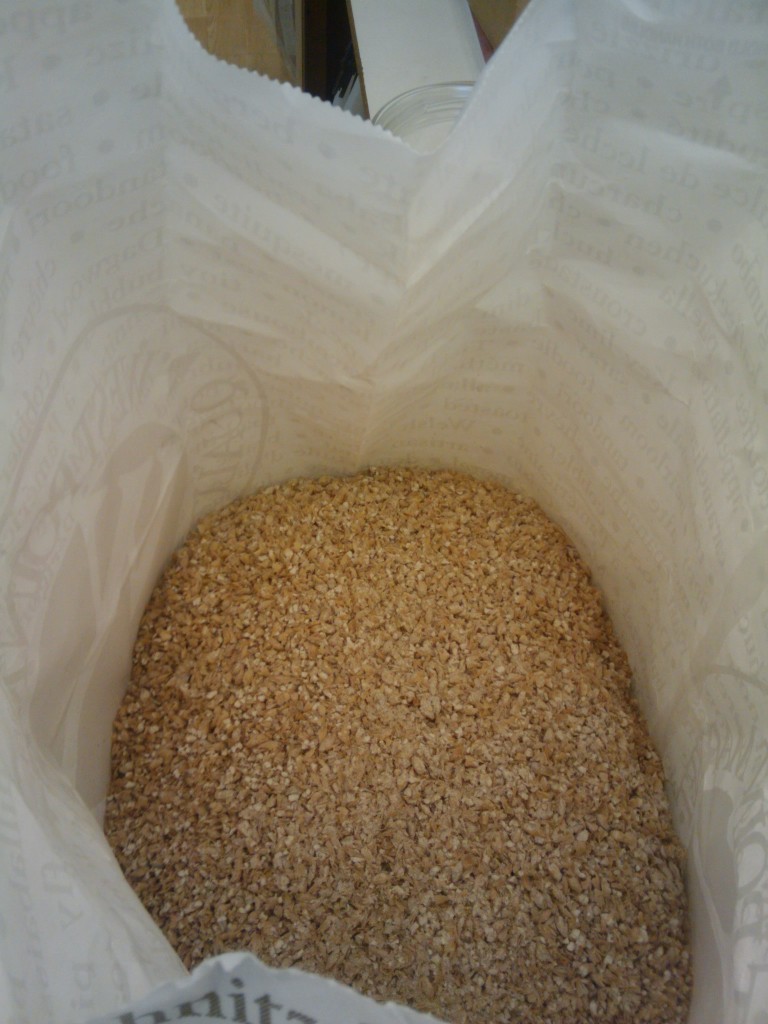
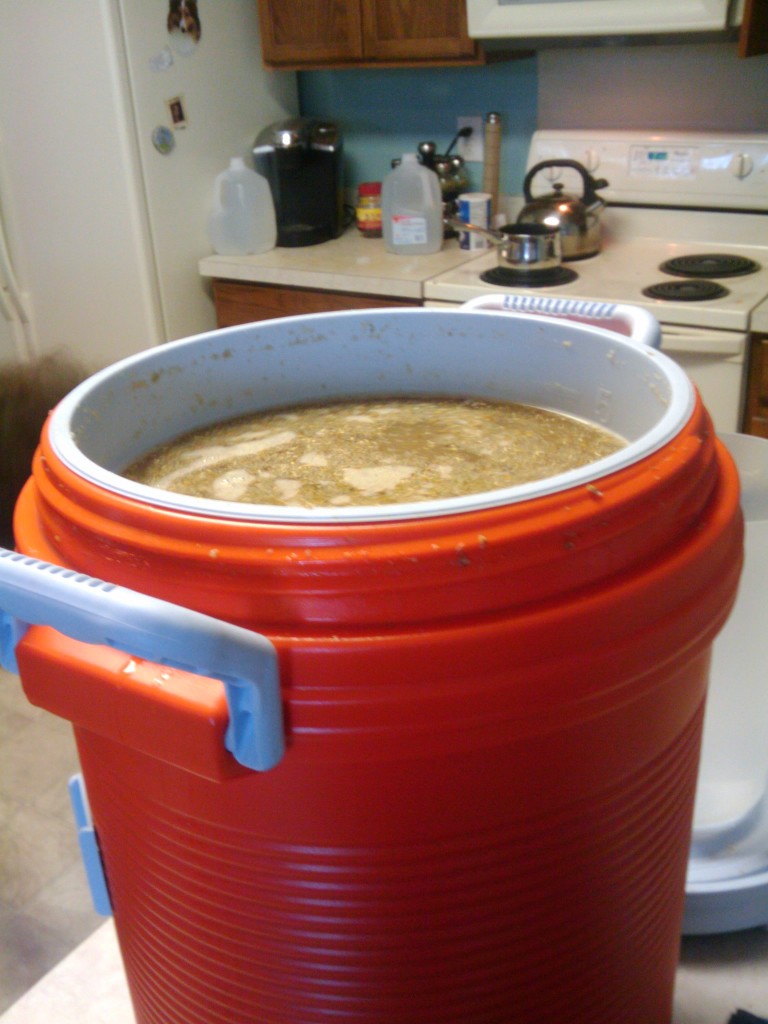
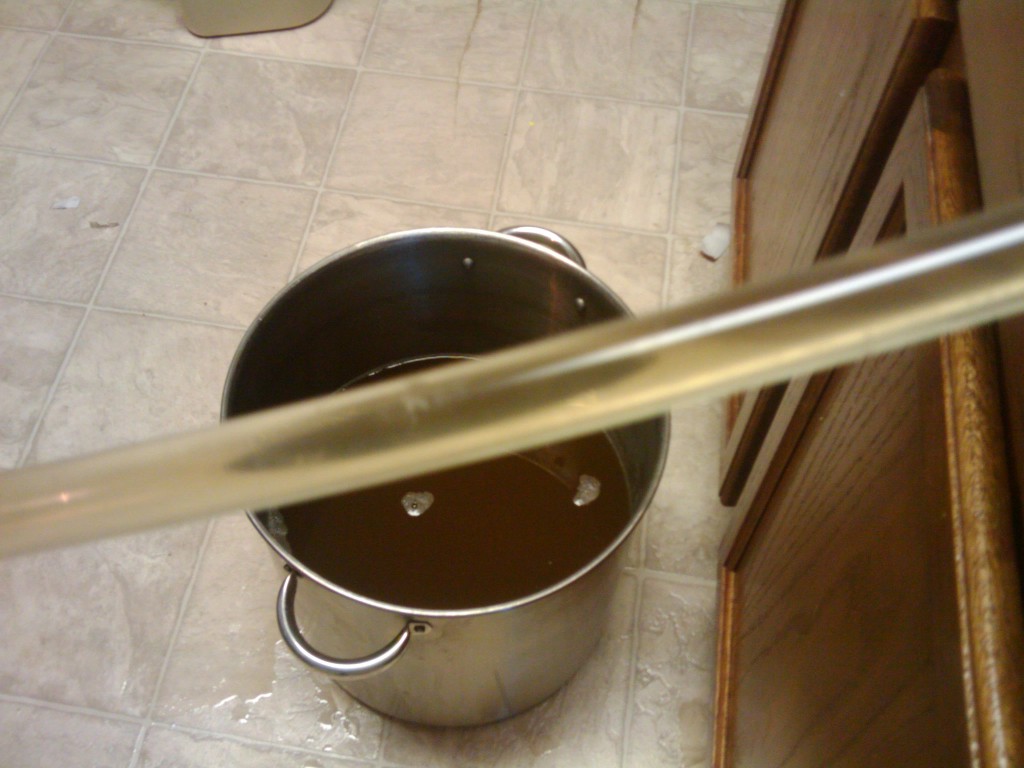
The final product will not be known yet, as we have only just bottled it. But the leftover from bottling was mighty tasty–a hint of sweetness with a tantalizingly spicy and complex finish. Nevertheless, a good three weeks stand between now and tasting. On top of which add that this style achieves best flavor a couple of months after bottling and you can see that we’re in for a bit of a wait. But the brew-train moves on! One of our number now lives in the far away land of Asheville, but we are still trying to brew each week. It has been difficult to maintain, but we are still brewing every few weeks at the least. My goal is to be well-enough versed by midsummer so that I can craft my own version of Romulan Ale to bring to Dragon*Con. And I think we’re well on our way ![]()
